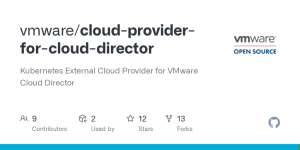
Multinational computer technology firm, Oracle, has unveiled details of its latest financial performance, fueled by its commitment to cloud computing and AI.
The company’s higher-than-expected bookings and major cloud partnerships reflect continued progress in its efforts to challenge industry leaders like Amazon, Microsoft, and Google.
Among the notable announcements was Oracle’s cloud partnership with OpenAI, Microsoft Corp., and Alphabet Inc.’s Google. These alliances will extend the Microsoft Azure AI platform to Oracle Cloud Infrastructure (OCI), enhancing the capacity for OpenAI’s generative AI services that currently support over 100 million users each month.
OpenAI’s CEO, Sam Altman, expressed delight in working with Microsoft and Oracle, stating, “OCI will extend Azure’s platform and enable OpenAI to continue to scale.” Larry Ellison, Oracle’s chairman and CTO, echoed this sentiment, highlighting the “unlimited demand” for Oracle’s Gen2 AI infrastructure in the race to build the world’s greatest large language model.
Oracle’s leading AI infrastructure is driving innovation, with OpenAI joining thousands of AI innovators across industries that run their AI workloads on OCI. Companies like Adept, Modal, MosaicML, NVIDIA, Reka, Suno, Together AI, Twelve Labs, xAI, and others are utilising OCI Supercluster to train and inference next-generation AI models.
OCI’s purpose-built AI capabilities enable startups and enterprises to build and train models faster and more reliably across Oracle’s distributed cloud. For training large language models (LLMs), OCI Supercluster can scale up to 64k NVIDIA Blackwell GPUs or GB200 Grace Blackwell Superchips, connected by ultra-low-latency RDMA cluster networking and a choice of HPC storage.
Strong financial performance
Furthermore, Oracle reported that its total remaining performance obligations, a measure of future contracted sales, increased by a remarkable 44% to $98 billion in the fiscal fourth quarter, surpassing analysts’ average estimate of $73.9 billion. This growth is fueled by the strong demand for AI workloads, according to CEO Safra Catz.
Catz stated that revenue growth will increase by double digits in the current fiscal year ending in May 2025, driven by the immense demand for artificial intelligence workloads. She added that growth should accelerate throughout the year as the cloud unit’s “capacity begins to catch up with demand.”
Oracle also announced a new agreement to make its namesake database available on Google’s cloud infrastructure, complementing a similar deal with Microsoft late last year. Ellison noted that the Microsoft deal “will turbocharge our cloud database growth.”
The momentum in Oracle’s cloud infrastructure business is “undeniable,” according to analyst Kirk Materne from Evercore ISI, who described the OpenAI announcement as “another positive data point in AI.” Catz further revealed that the cloud infrastructure unit will grow more than 50% in the current fiscal year.
Oracle’s shares soared, reaching a high of $137.37 in late trading after closing at $123.88 in New York, jumping almost 18% this year and hitting a record in March. Revenue from the cloud unit that rents computing power and storage increased 42% to $2 billion in the quarter ended May 31, surpassing analysts’ average estimate.
However, Oracle faced a slowdown in its application software business, with sales in its cloud applications unit, including Fusion apps for corporate finance, increasing 10% to $3.3 billion, below analysts’ estimates. This slowdown is attributed to technology budgets being funnelled toward AI tools, as seen with underwhelming results from peers like Salesforce Inc. and Workday Inc.
Nonetheless, the new partnerships are likely to accelerate growth in Oracle’s cloud infrastructure business, potentially offsetting the slowdown in applications, according to analyst Anurag Rana from Bloomberg Intelligence.
Oracle’s results were also impacted by its health unit, which includes Cerner, the electronic health records business acquired for $28 billion in June 2022. The company is transitioning the legacy software business to the cloud but has faced challenges like customer departures and renegotiating a flagship federal contract.
Catz announced that Oracle will no longer break out Cerner’s financial results during earnings, “because it is now operating in a growth mode.” Additionally, the company plans to exit its advertising business, which generated only $300 million in the fiscal year that ended May 31.
Overall, Oracle’s strategic focus on cloud computing and AI, bolstered by significant partnerships and growing demand, positions the company for continued growth and success in the highly competitive tech landscape.


Want to learn more about AI and big data from industry leaders? Check out AI & Big Data Expo taking place in Amsterdam, California, and London. The comprehensive event is co-located with Cyber Security & Cloud Expo and Digital Transformation Week.
Explore other upcoming enterprise technology events and webinars powered by TechForge here.
Tags: AI, cloud, google cloud, microsoft, ORacle


